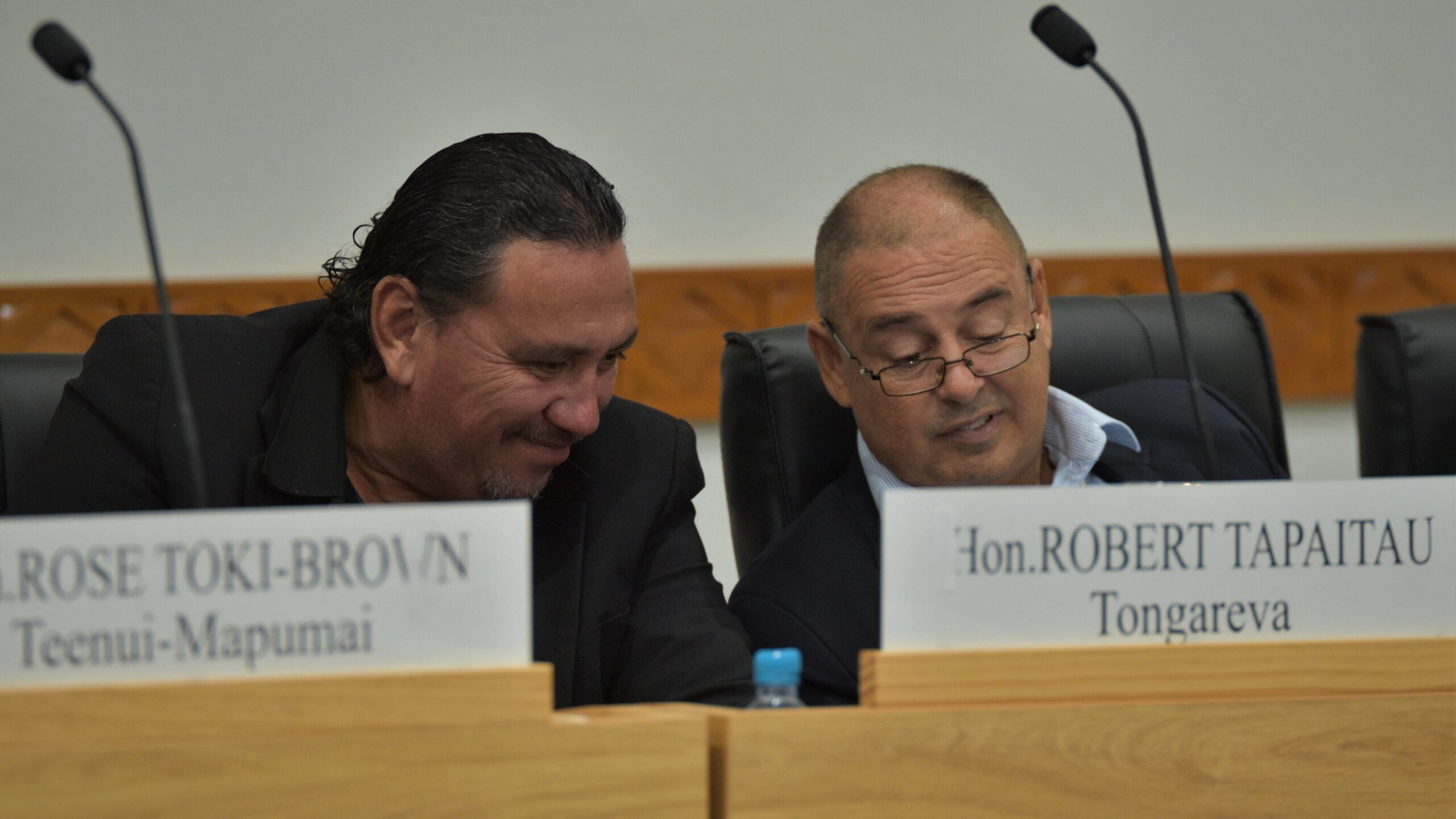Citizens Against Corruption to challenge DPM’s reinstatement in court
Thursday 2 June 2022 | Written by Caleb Fotheringham | Published in Economy, National

Citizens Against Corruption challenged the reinstatement of Robert Tapaitau as Deputy Prime Minister in the High Court earlier this year. Tapaitau, left, is pictured with Prime Minister Mark Brown in Parliament. Photo: CALEB FOTHERINGHAM/22060150
Citizens Against Corruption (CAC) will challenge the reinstatement of Robert Tapaitau as Deputy Prime Minister in the High Court.
Solicitor counsel for the organisation, Norman George said CAC chairman Paul Allsworth instructed “an urgent application” to be made.
The application is seeking a Declaratory Judgement to have the appointment of Tapaitau to be declared null and void by the Court of Appeal of the Cook Islands.
In a statement, George said the application was being made in the absence of the Opposition Democratic Party taking action.
“The actions of both the PM and QR (Queen’s Representative) amount to a grievous destruction and desecration of the Rule of Law in our country today,” George said in the statement.
Penrhyn MP Tapaitau, who is facing fraud-related and theft charges, was suspended on full salary in October last year. The Queen’s Representative, Sir Tom Marsters, acting on the advice of the Prime Minister, revoked the suspension of Tapaitau late last month.
Yesterday, Prime Minister Mark Brown said the Citizens Against Corruption should be busy figuring out how to pay their current legal bills before getting involved in other issues.
“I think Norman George and his failed group of conspirators, the Citizens Against Corruption, are in the process of determining what their costs are going to be to pay for their initial failed legal attempts,” Brown said making reference to last year’s failed corruption case brought by the group against himself and former PM Henry Puna.
“I think they have their hands full there rather than try and light political fires around the place to make them still sound relevant.”
Leader of the Opposition, Tina Browne said: “The Democratic Party does not think a Court will interfere with decisions made by the executive arm of Government unless there is a clear breach spelt out in the legislation.”
“The QR is obliged to act on the advice of the PM,” Browne said.
“No Court will enquire into the reason why the QR exercised his discretion a certain way.”
However,
Browne said her party sees a need to amend Article 14 (7) and (8) of the
Constitution “to prevent a flagrant abuse, as our country has just recently
experienced, with the revocation of Tapaitau’s suspension”.
Citing
Cook Islands’ special relationship with New Zealand, lawyer George said: “Former
NZ PM Norman Kirk laid the foundation of our relationship many decades ago. In
a letter to the Cook Islands Government, PM Kirk said ‘our relationship is
based on sharing common interests and values with each other’.”
“Removing the suspension of a Cabinet Minister while facing four serious criminal charges before his trial will never be acceptable in New Zealand.”
George cited Article 14 (7)(b) of the Constitution in the statement.
“The QR acting on the advice of the PM may by instrument under the seal of the Cook Islands _ (b) suspend a minister during the period of any investigation or inquiry into the conduct of the minister.
“The QR was not obligated to accept the advice of the PM. The QR should have sought independent legal advice and failed to uphold the dignity of his office by proceeding with their appointment.
George said: “No competent lawyer worth his beans will ever advice in favour of supporting the reinstatement of a suspended Minister made prior to his trial.”
Citizens Against Corruption will ask the High Court to refer the application directly to the Court of Appeal, the statement said.
George said the application was pursuant to section 3 of the Declaratory Judgements Act 1994.
George said he was taking on the case pro bono but CAC had no funds for other matters associated with the case. He said any donations would be appreciated.












































